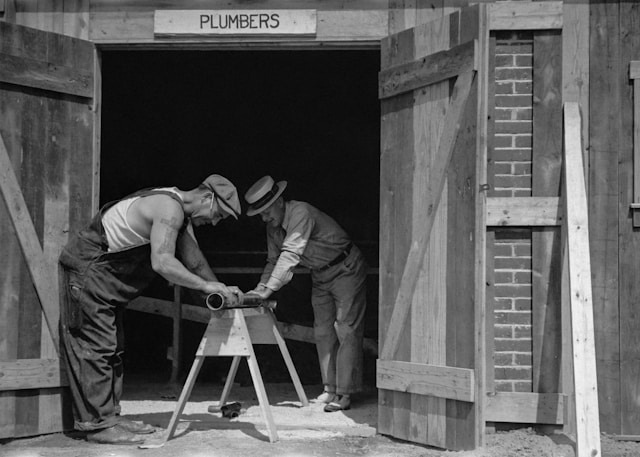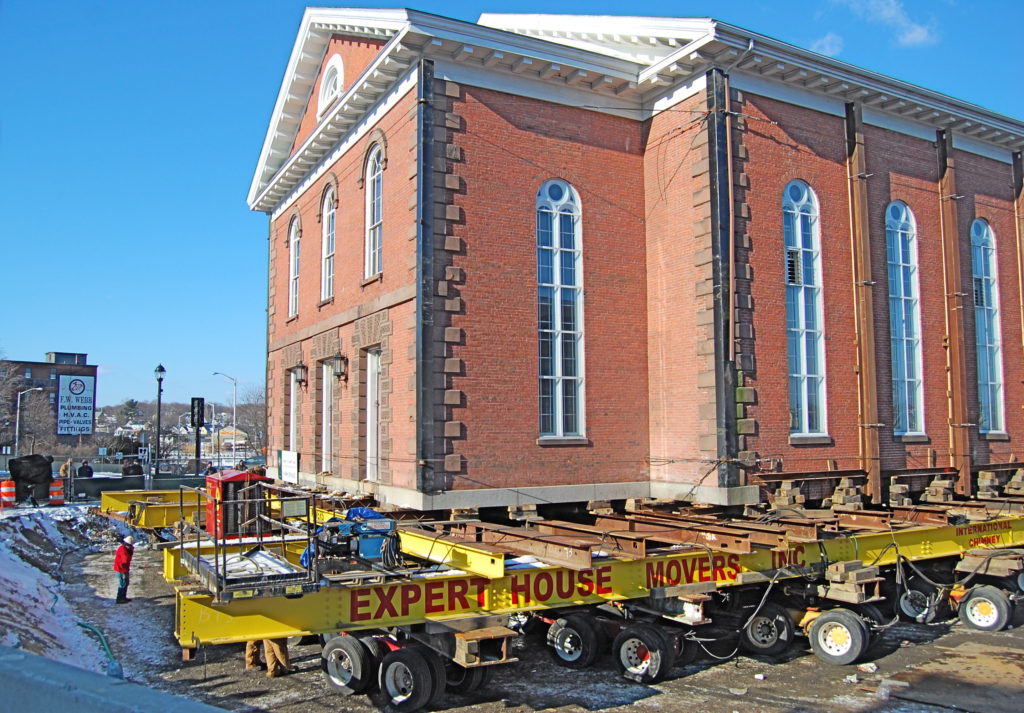When you have a plumbing issue at home, whether it’s a leaky faucet, a clogged drain, or a malfunctioning water heater, calling a plumber is often the first step to getting it fixed. However, not all plumbers are created equal. While many can perform basic repairs, there is a clear distinction between a general plumber and an expert. An expert plumber brings a level of skill, knowledge, and professionalism that sets them apart. Hiring an expert plumber ensures that the job is done right the first time, preventing recurring problems and potentially saving you a lot of money and stress in the long run. Understanding what makes a plumber an expert can help you identify the right professional to meet your plumbing needs.
Extensive Training and Certification
One of the key factors that make a plumber an expert is their extensive training and certification. Unlike some trades that can be learned quickly, plumbing requires a comprehensive understanding of various systems, materials, and techniques. Expert plumbers often start their journey through formal education and hands-on training. Many attend vocational schools or community colleges to learn the fundamentals of plumbing, such as pipefitting, water systems, and building codes. In addition to their initial education, they typically complete a multi-year apprenticeship under the guidance of an experienced plumber. During this apprenticeship, they gain invaluable on-the-job experience, learning how to handle a wide range of plumbing issues in real-world settings.
Certification and licensing are also important markers of an expert plumber. In most regions, plumbers are required to obtain a license to practice legally. This license is usually granted after passing a rigorous examination that tests their knowledge of plumbing systems, local building codes, safety regulations, and more. Some expert plumbers go a step further and obtain additional certifications in specialized areas, such as backflow prevention, gas line installation, or water heater maintenance. These certifications demonstrate a plumber’s commitment to their craft and their willingness to stay updated on the latest industry standards and techniques.
In-Depth Knowledge of Plumbing Systems
Expert plumbers possess a deep understanding of both residential and commercial plumbing systems. This knowledge extends beyond just fixing common issues; they are well-versed in the intricacies of various plumbing setups, including water supply lines, drainage systems, gas piping, and even the inner workings of appliances like water haters and boilers. Their extensive knowledge allows them to diagnose complex problems accurately and efficiently, often resolving issues that less experienced plumbers might overlook or misinterpret.
In residential plumbing, expert plumbers understand how different components of the system work together. They know how to assess water pressure, identify leaks in hidden pipes, and install fixtures in a way that maximizes both functionality and water efficiency. In commercial settings, plumbing systems can be far more complex, involving large-scale installations, multiple floors, and heavy-duty equipment. An expert plumber in this domain knows how to navigate the building’s infrastructure, address potential hazards, and comply with strict building codes.
Beyond just the technical aspects, an expert plumber understands how to integrate various plumbing systems into the overall design of a home or building. For example, they can recommend the best placement for water heaters, suggest energy-efficient fixtures, and ensure that drainage systems are designed to prevent backflow and flooding. This holistic approach to plumbing makes them invaluable in both new construction projects and extensive renovations.
Problem-Solving Skills and Experience
Another characteristic that distinguishes an expert plumber is their exceptional problem-solving skills. Plumbing issues are not always straightforward; they often require a methodical approach to identify the root cause. An expert plumber draws on years of experience to troubleshoot problems effectively. For instance, a simple leak might be indicative of a larger issue, such as corrosion in the pipes or high water pressure that needs to be adjusted. An experienced plumber knows how to ask the right questions, perform thorough inspections, and use diagnostic tools to pinpoint the source of the problem.
Experience also plays a significant role in an expert plumber’s ability to handle unexpected challenges. During the course of a job, unforeseen issues can arise, such as discovering old, outdated pipes during a bathroom remodel or encountering an improperly installed sewer line. An expert plumber remains calm and adapts to the situation, leveraging their knowledge and experience to find practical solutions. Their ability to think on their feet and make informed decisions sets them apart from plumbers who may struggle with less familiar or more complex scenarios.
Furthermore, an expert plumber often has experience with a variety of plumbing systems, including both traditional setups and newer, more advanced technologies. This versatility enables them to work on different types of projects, from repairing vintage plumbing in historic homes to installing high-efficiency systems in modern buildings. It also allows them to recommend the best products and materials for each specific situation, ensuring that the repairs or installations are durable and effective.
Use of Advanced Tools and Techniques
Expert plumbers have access to and are proficient in using advanced tools and techniques that enhance their ability to tackle complex plumbing issues. While basic plumbing problems can often be addressed with simple hand tools, more challenging tasks require specialized equipment. Expert plumbers are skilled in using devices such as pipe cameras, hydro-jetting machines, and electronic leak detectors, which allow them to inspect, clean, and repair plumbing systems with greater precision and efficiency.
For example, when dealing with a suspected underground pipe leak, an expert plumber can use a pipe inspection camera to look inside the pipes without needing to excavate the area. This technology not only saves time and minimizes disruption but also provides a clear visual of the problem, leading to a more accurate diagnosis and targeted repair. Similarly, hydro-jetting machines use high-pressure water to clear blockages in sewer lines, an advanced technique that is often more effective than traditional snaking methods.
In addition to using the latest tools, expert plumbers stay informed about emerging technologies in the plumbing industry. This might include knowledge of smart home plumbing devices, such as leak detection systems and Wi-Fi-enabled water heaters, or expertise in installing eco-friendly fixtures designed to conserve water. By staying up to date with technological advancements, expert plumbers can offer their clients modern solutions that enhance efficiency, reduce water usage, and lower utility bills.
Commitment to Customer Service and Professionalism
Beyond technical expertise, an expert plumber understands the importance of customer service and professionalism. Plumbing problems can be stressful for homeowners and business owners alike, so an expert plumber strives to make the repair process as smooth and stress-free as possible. This involves clear communication, prompt response times, and a respectful approach to working in someone’s home or business.
An expert plumber listens to the client’s concerns, explains the nature of the problem, and outlines the steps needed to fix it. They provide accurate estimates for both time and cost, ensuring that there are no surprises along the way. Additionally, they take care to protect the client’s property, using drop cloths, wearing protective shoe covers, and cleaning up thoroughly after the job is completed.
Professionalism also extends to the plumber’s attitude toward ongoing learning and improvement. An expert plumber is not content to rely solely on past knowledge; they actively seek opportunities to further their skills through continued education, certifications, and keeping up with industry best practices. This dedication to growth demonstrates their commitment to providing the best possible service to their clients.
Understanding of Safety and Building Codes
Safety is a top priority for expert plumbers. They are well-versed in local building codes and regulations, ensuring that all work performed is compliant with the law. This is particularly important for installations involving gas lines, water heaters, and sewage systems, where improper installation can pose serious health and safety risks. By adhering to the codes and following safety protocols, expert plumbers not only protect their clients but also guarantee the long-term functionality of the plumbing systems they work on.
In situations where plumbing work requires permits or inspections, an expert plumber will manage these aspects on behalf of the client, ensuring that the project meets all legal requirements. Their comprehensive understanding of safety standards and building codes provides peace of mind to clients, knowing that the work is being done correctly and safely.
Final Word
What makes a plumber an expert goes far beyond their ability to fix a leaky faucet or unclog a drain. It involves a combination of extensive training, in-depth knowledge of plumbing systems, problem-solving skills, experience, the use of advanced tools, commitment to customer service, and adherence to safety standards. By embodying these qualities, an expert plumber delivers high-quality work that is efficient, reliable, and built to last. When choosing a plumber for your next repair or installation, looking for these attributes will help ensure that you are hiring someone capable of handling the job with professionalism and expertise.



